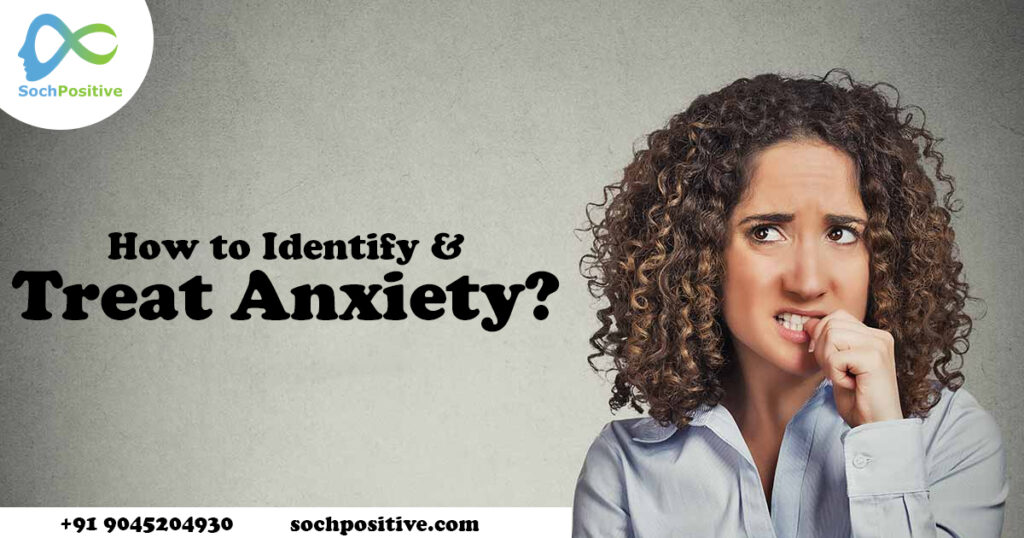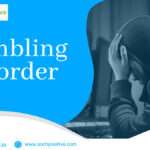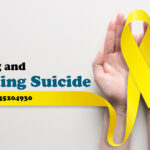By Sushmita Dindwal
How would you identify anxiety
“Anxiety is a thin stream of fear trickling through the mind. If encouraged, it cuts a channel into which all other thoughts are drained.” Rightly said by Sir Arthur Somers Roche. If anxiety is considered to be our constitution, then this statement ought to be the preamble. The gist of anxiety has rightly been explained by Sir Roche. Fear is the backbone that causes anxiety. Fear is an emotion which we experience when the source of danger is obvious (I am afraid of snakes) but if we frequently cannot specify clearly what the danger is, that is anxiety (I am anxious about my parents). To elucidate this in a simpler manner, we need to have a look about the components of anxiety. There are 3 components of anxiety. Cognitive or subjective: it involves negative moods, worries about possible future threatens or danger, self-preoccupation i.e. a sense of being unable to predict the future threat or to control it if it occurs. Physiological: create a state of tension and chronic over arousal which may reflect risk assessment and readiness i.e. no fight or flight response. Behavioral: create strong tendency to avoid situation, not the immediate behavioral urge. Anxiety can be moderate which can enhances learning and performance such as exam performance. It is also maladaptive and becomes chronic and severe.
Now we have known the types, hence , we have better knowledge of anxiety , we will now move forward to how we can identify anxiety to have a deeper understanding
Symptoms of Anxiety : Feeling nervous, restless or tense, Feeling nervous, restless or tense, having a sense of impending danger, panic or doom, Having an increased heart rate, Breathing rapidly (hyperventilation), sweating , trembling , feeling weak or tired , Trouble concentrating or thinking about anything other than the present worry.
All these symptoms can be pretty much disturbing, despite of the seriousness they offer, you’ll be delighted to know that all of these are curable with precise help from an experienced psychology practitioner. We shall now have a look upon the types of anxiety disorders known till now.
Types of Anxiety : Specific phobia : it’s a strong and persistent fear that is triggered by the presence of a specific object or situation. This phobia includes subtypes like by animal(dogs, spider, snakes etc), natural environment (storms, height, water), blood-injection injury(seeing blood or injury), situational(public transport, flying) and other(space phobia). Social phobia : It is also called social anxiety disorder in which person faces disabling fears of public speaking ie Performance situation, urinating in a public bathroom, eating or writing in public i.e. Nonperformance situations. Panic disorder: In this a person is experiences repeated, unexpected attacks and have been persistently concerned about having another attack. This includes some personal and some cognitive symptoms like Physical symptoms: Palpitations, sweating, shaking, chest pain, Nausea, Feeling dizzy, unsteady, chills .
Cognitive symptoms: Depersonalization is a feeling of being detached from one’s body or derealization, a feeling that the external world is strange or unreal feeling of dying. Fear of going crazy or losing control. Agoraphobia: In this the most commonly feared and avoided situations include streets and crowded place such as shopping malls, movies threatens, and stores. Feel fear and anxious during using public transport, being in a open space, being in a closed place, standing in line etc. Generalized anxiety disorder: In this a person experience worry about different aspects of their life including minor events which becomes chronic, excessive, and unreasonable. Its Symptoms are restlessness, being easily fatigued, difficulty in concentrating, irritability, muscle tension, sleep disturbance
There can be various reasons for anxiety, which includes having other mental disorders, such as depression, raises your risk of developing anxiety disorders. Child sexual abuse. Emotional, physical, and sexual abuse or neglect during childhood is linked to anxiety disorders later in life. Harassment. Living with a traumatic event increases the risk of posttraumatic stress disorder (PTSD), which can lead to panic attacks. Negative health events. Stressful or negative health events, such as the loss of a parent at an early age, increase your risk of developing anxiety disorders. Serious illness or chronic health condition. Constantly worrying about your health or the health of your loved one, or caring for someone who is ill, can make you feel frustrated and anxious. Drug abuse. Alcohol and drug abuse can lead to anxiety. Some people use these substances to hide or reduce symptoms of anxiety. Shame as a child. Embarrassment and withdrawal from strangers and places during childhood are linked to social anxiety among young people and adults. Self-loathing, Negative opinions about yourself can lead to public concern.
Diagnosing of Anxiety Disorder: If you have symptoms, your doctor will examine you and ask you questions about your medical history. They may also do some tests to rule out other health conditions that may be causing your symptoms. No laboratory tests can directly diagnose anxiety disorders. If your doctor cannot find a physical reason for your condition, he or she may refer you to a psychiatrist, psychiatrist, or other mental health professional. Those doctors will ask you questions and use diagnostic tools and tests to find out if you may have anxiety disorder. Learn about your illness. The more you know, the better equipped you will be to manage landmarks and roadblocks. Do not be afraid to ask your doctor any questions you may have. Remember, you are an important part of your health care team. Your doctors will consider how long you have had symptoms and how strong they are when they diagnose you. It is important to inform your doctors or counselors if your anxiety makes it difficult to enjoy or finish daily activities at home, work, or school. Now that we have ample information about anxiety , its causes -types and the symptoms it offers , the final part brings us to the measures we can take to avoid getting anxious in the first place and moreover some effective ways to get rid of frequent anxiety if we get one.
Medications. Several types of drugs are used to treat anxiety disorders. Talk to your doctor or psychiatrist about the pros and cons of each medication to decide which one is right for you. Psychotherapy: This is a form of counseling that helps you to learn how your emotions affect your behavior. It is sometimes called talk therapy. A trained mental health professional will listen to you and talk to you about your thoughts and feelings and suggest ways to understand and control you and your anxiety problem. Cognitive Behavioral therapy (CBT): This common form of psychotherapy teaches you how to change negative thoughts and behaviors, or fears, and behaviors into positive ones. You will learn ways to approach carefully and manage fearful or stressful situations without worry. Some places offer family CBT sessions.
Stick to your treatment plan. Sudden discontinuation of medication can cause side effects and may even cause symptoms of anxiety. Limit caffeinated foods and beverages, such as coffee, tea, cola, energy drinks, and chocolate. Caffeine is a mood-altering drug, and it can increase symptoms of anxiety. Don’t use alcohol and street drugs for fun. Drug abuse increases the risk of developing anxiety disorders. Eat right and exercise. Rapid aerobics exercises such as running and cycling help release brain chemicals that reduce stress and improve your mood. Sleep better. Sleep problems and anxiety are often associated. Make good rest a priority. Follow a relaxed sleep routine. Talk to your doctor if you still have trouble sleeping. Learn to relax. Depression management is an important part of your anxiety treatment plan. Things like meditation, or concentration, can help you relax after a stressful day and can make your treatment more effective. Keep a journal. Writing down your thoughts before sunset can help you to stay calm and keep your mind off your thoughts all night long. Control your negative thoughts. Focusing on positive thoughts instead of negative ones can help reduce anxiety. This can be a challenge if you have certain types of anxiety, however. Moral therapy can teach you how to regain your thoughts. Share with friends. Whether you talk about it in person, on the phone, or on the computer, social networking sites help people to succeed and stay healthy. People who have a close group of friends who support and interact with them have lower levels of social anxiety. Seek support. Some people find it helpful and encouraging to talk to others who have the same symptoms and feelings. Self-help or support groups allow you to share your worries and success with others who are or have been. Ask your doctor or pharmacist before taking any over-the-counter medications or remedies. Many have chemicals that can make symptoms worse. The bottom line is – Treat anxiety like just another physical illness , which can be cured with appropriate treatment. Don’t be ashamed of it , don’t consider yourself vulnerable , you’ve back up , just ask the right person.






